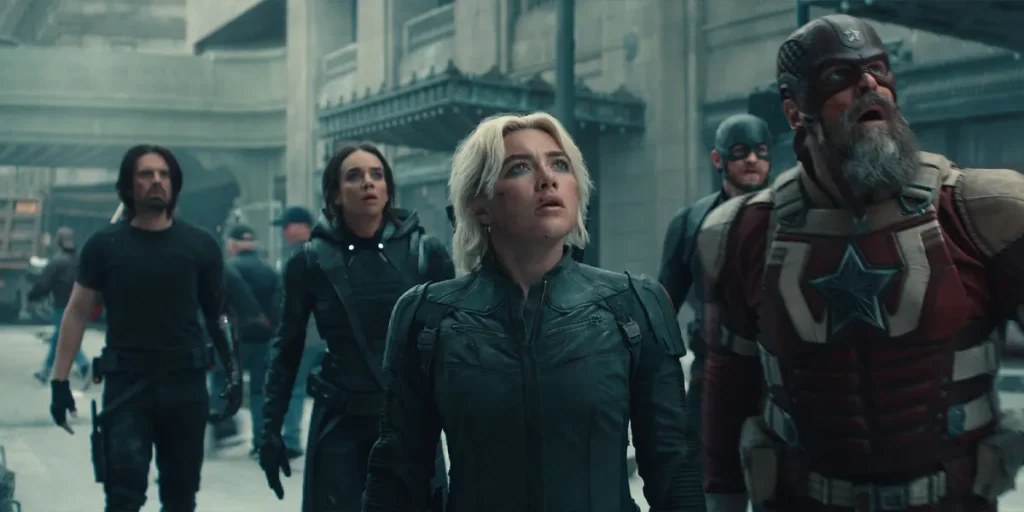Thunderbolts* is uneven for most of its runtime, but its surprisingly heartfelt and unconventional ending saves the movie. Here’s that ending explained!
Thunderbolts* is the latest film in the long-running Marvel Cinematic Universe, and the first traditional one – as in, non-Deadpool – in a couple of years to be mostly well received. It also contains an ending that takes a very major swing… so major, in fact, that the ending’s success saves the entire project from being just another generic MCU movie, which is largely what it had been beforehand. That’s not to say the finale gets every single thing right, but when such a struggling franchise goes in such an unexpected direction, it’s worth highlighting at the very least. And, of course, having explained.
Thunderbolts* is about a group of shady, ragtag rogues and antiheroes including Yelena Belova (Florence Pugh, of Black Widow), Red Guardian (David Harbour, also from Black Widow), Bucky Barnes (Sebastian Stan, of Captain America: The Winter Soldier, John Walker (Wyatt Russell, of Falcon and the Winter Soldier), Ava Starr/Ghost (Hannah John-Kamen, of Ant-Man and the Wasp), and Taskmaster (Olga Kurylenko, of Black Widow). When they’re all brought together in a deathtrap by their supervisor, corrupt CIA director Valentina Allegra de Fontaine (Julia Louis-Dreyfus, of Black Panther: Wakanda Forever), they’re forced to work together to escape, only to discover Valentina’s plans have birthed an even greater threat for them to take down.
As for the nature of the threat, well… that’s where the film’s ending throws you for a loop. How? Let’s dive in to get the ending explained, with full spoilers from here.
One More Thunderbolt: Bob
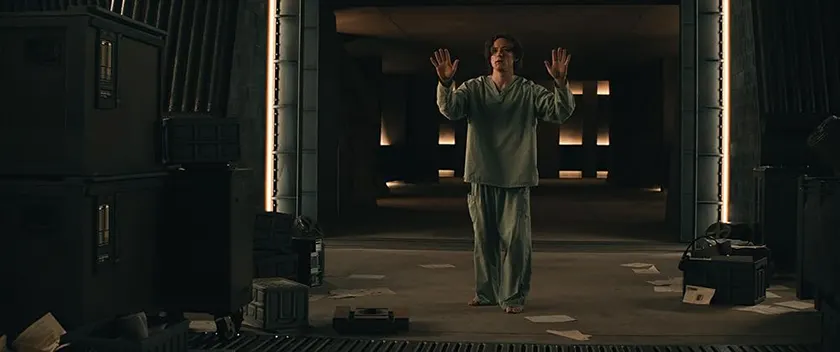
For all the recognizable characters that show up in Thunderbolts*, the most important one to this story is a surprise newcomer: Robert “Bob” Reynolds, played by Lewis Pullman (who played another Bob in Top Gun: Maverick). This seemingly normal human mysteriously shows up in a box within Valentina’s trap and joins the team in escaping, but we soon learn he has powers he didn’t even know about. He inadvertently transports people to traumatic moments in their pasts just by touching them, and he levitates and crashes down to the ground beyond his control.
It turns out Bob is the only surviving test subject of the “Sentry” project, a series of trials headed by Valentina to create a new superhuman. He’s also a down-on-his-luck, traumatized drug addict who feels no purpose in his life, which makes him susceptible to Valentina’s promises of greatness as she completes his transformation into the all-powerful Sentry. As for why he was in that box… honestly, I can’t recall the film ever explaining that. Regardless, he proves more powerful than any Avenger before him. But his delusions of grandeur cause him to turn on Valentina as well, prompting her to activate a pre-built kill switch that seemingly nullifies the Sentry… only to activate something far worse.
With Bob’s powers apparently came an entire alter ego: the Void, a Dark Link-esque shadow figure who begins consuming all of New York City in darkness and causing civilians to disappear into a… well, void. At this point, I was fully expecting your typical big, loud, action-packed MCU climax against a massive threat, culminating in maybe a couple of minutes of the Thunderbolts getting Bob back to his senses. But instead, the ending of Thunderbolts* goes in a very different, much more psychological direction.
The Ending of Thunderbolts* Explained
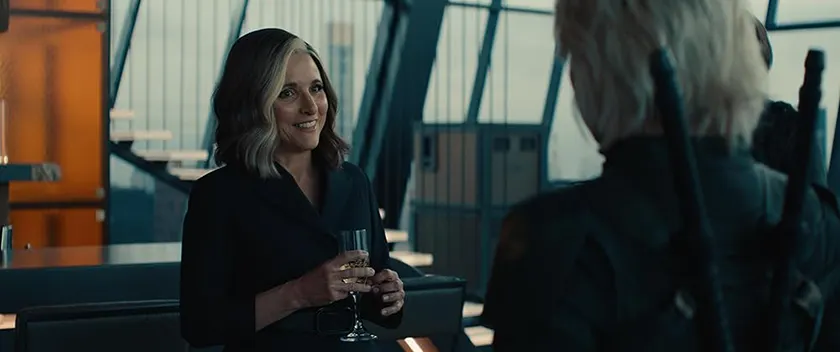
“The Void” isn’t just a dark version of Bob. It’s the literal physical embodiment of depression and emptiness itself, manifesting within Bob and spreading to everyone it touches. As such, the Thunderbolts decide that the only way to stop the Void is by entering it, fully confronting their trauma, and helping Bob confront his. Yelena finds a distraught Bob, who has silently succumbed to his despair, and has a heartfelt talk about how they can’t shove down their grief and loneliness.
The Void as a persona then appears and wills the environment itself to attack and subdue everyone but Bob, who now feels empowered enough to viciously beat down the shadowy figure. But that only makes the room more volatile, and the Thunderbolts realize that fighting to totally destroy the “emptiness” is not the solution. The solution is learning to live with it as a part of you. They all embrace Bob at once, getting him to calm down and ensuring him that he’s not alone. This, finally, is what gets the Void to subside, returning them and the rest of New York back to the “normal” world.
After all that drama, it looks like Valentina will finally be exposed for her wrongdoings. But she turns the tables by congratulating the Thunderbolts for saving the day and deeming them “The New Avengers.” I guess you could say this superhero movie was an origin story for the title’s asterisk. One credit sequence later, and it looks like there’s still global debate over who the “real” Avengers are. A ship with the Fantastic Four logo also appears, which would’ve been a major shock if the trailer for their new movie hadn’t been played immediately before this one.
Why the Ending Saves Thunderbolts*
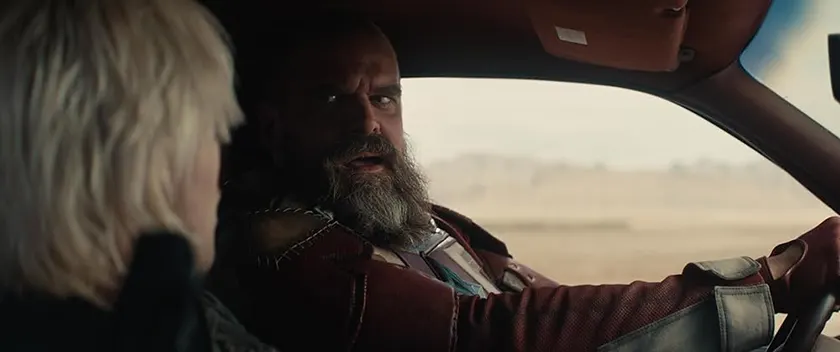
The first two acts of Thunderbolts* are serviceable and generally fun, but rarely anything more. The team’s grief and loneliness are explicitly established and occasionally tapped into, but they’re not the focus. You could argue that these characters’ appearances in other MCU entries fills those gaps, but that doesn’t hold water if you haven’t seen a lot of those projects. Especially since Bob has not been in a previous MCU story and is also underdeveloped throughout most of the movie. We only get bits and pieces of the type of life he’s led, his sense of inferiority, one or two solid talks with Yelena, and his relatively sudden shift from insecure wreck to confident demigod after a couple of scenes with Valentina. Nothing more is shown or even explained.
However, as soon as we enter the Void, the emotional weight not only takes center stage, but is portrayed in a very unique way for a superhero movie. Unlike other Marvel movies where the character-driven drama is one of many factors of the climax (even really good ones like Wakanda Forever or Guardians of the Galaxy: Vol. 3), Thunderbolts* sees its climax revolve entirely around that drama from the very foundation. Yelena and Bob have very different pasts, but they both feel similarly empty, alone, and purposeless. And now that saving the day is solely reliant on them coming to grips with that and resolving to stand side-by-side in facing it, we have an entire finale where they literally do exactly that.
The Psychology of the Ending Explained
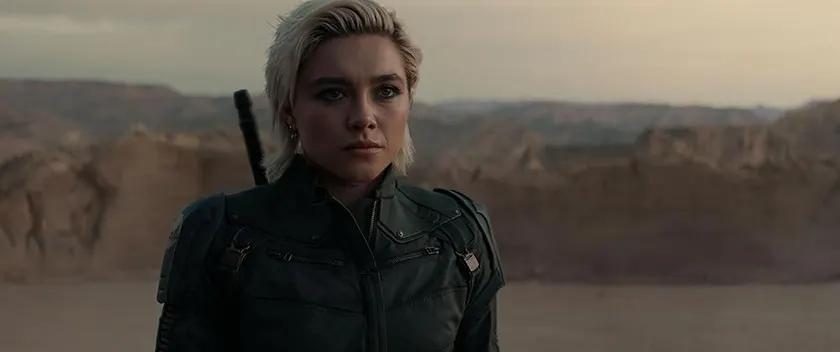
Thunderbolts* becomes more of a psychological thriller than an action movie at this point. Even when the (relatively downplayed) spectacle kicks in, it’s all representative of a purely mental, internal conflict. But it’s one that every character is sharing with each other, like a proper support group would. Yelena even finds Bob within the Void through his reflection in a mirror, as if he’s a reflection of herself. The material form of grief grows more violent the more it’s resisted, like it does when a lot of depressed and suicidal people are struggling to even accept help in the first place. And through it all, we’re given harsh, downright disturbing glimpses into the worst memories these characters have ever had to carry, with the characters having no choice but to accept them as parts of their histories.
The resolution is especially impactful, because it’s such a painfully true way of showing how people recover from their darkest feelings. It’s still popular to think that when confronting sadness and regret, even in the bravest, most direct way possible, the goal is to “defeat” these emotions and make them go away. But that doesn’t work in Thunderbolts*. The dark, ominous monster in Bob’s life is always going to be there. It’s part of who he is… and, as he realizes, that’s okay. Because the rest of his new friends feel it too, and just through a simple gesture of understanding and support, he finally believes there’s a way to find happiness and peace alongside his darker thoughts. It will always be a struggle, but it’s a struggle that’s worth taking on and part of life.
This isn’t the first movie to show such an idea in this way. In fact, I thought of Inside Out, Everything Everywhere All at Once, and a bit of Being John Malkovich while watching this climax. But I really wasn’t prepared for Thunderbolts* to pin down such a sharply layered, bittersweet aspect of being human and weave it so inescapably and experimentally into its third act. Especially after it had previously coasted off the serviceable but dated MCU playbook. The director of the movie, Jake Schreier, has explained that a lot of Bob’s journey is based on his friend’s struggles with depression, which is very evident in the way it’s written, performed, and staged. He says his experience directing episodes of Beef, a show that also heavily explores emotional crises, helped a lot as well.
The Flaws That Remain in the Ending
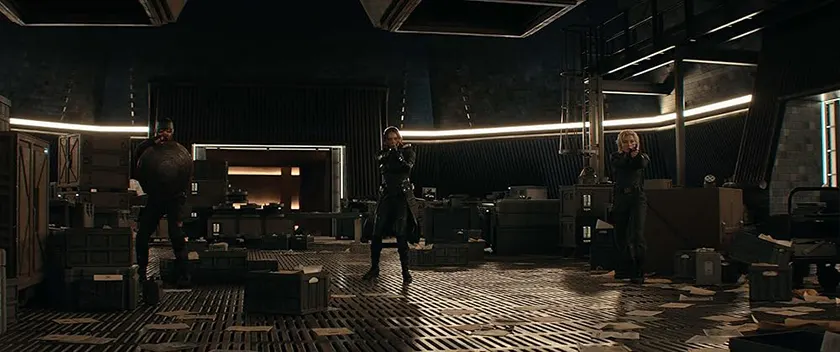
So, does this strong ending mean Thunderbolts* is a truly great movie? Or, as countless clickbaity reviews would say, is the MCU “back?” Not for me. As well done as this ending is, it would have been even better if Bob was even more developed. Here’s everything we end up knowing about his history and why he’s so troubled: he had an abusive father, he’s a drug addict, and he has a low opinion of himself while wanting to believe he can be better, which drove him to volunteer to be a Sentry test subject. That one-sentence list is as deep as my understanding of him goes. And while that certainly isn’t nothing, you don’t have enough specifics or time exploring him to feel like you know him as well as you should for a character this pivotal.
It’s also a shame that Yelena is the only other character whose full journey through the void we actually get to see. Once she meets up with Bob, the other Thunderbolts arrive and only briefly touch upon what they went through to get there. The plot and pacing of the rest of the movie just couldn’t squeeze in everything that would make these characters truly stand out, even when they’ve stood out in other stories. Ghost is the biggest let-down in that regard. She’s one of the many highlights in Ant-Man and the Wasp (a great movie full of great highlights, sorry not sorry), but she was not furthered as a character at all here. Though I guess that’s not as disappointing as being killed in your first scene. Sorry, Taskmaster… whoever you were.
The very, very end of Thunderbolts* is a mixed bag too. The idea of these nobodies being immediately launched as the official new Avengers, and then cutting instantly to the credits with only two quick scenes after, is very bizarre… But then, according to the post-credits scene, I guess there’s a lawsuit about it one year later, sort of? Did Bob ever face any pushback for what he did? How much power does Valentina still have despite the gallons of blood on her hands? It all plays too much like a winky joke and not enough like the major shift it should be, and it’s not even a joke I’m sure the movie wants to commit to. When this “Ending Explained” article can’t even explain all aspects of this ending, we have an issue here.
Thunderbolts* As a Whole
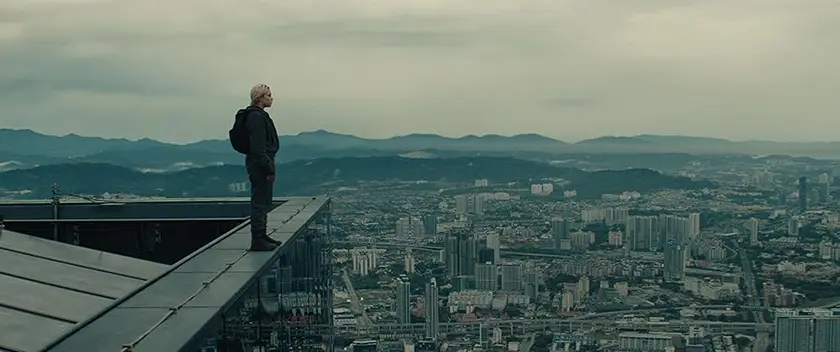
A majority of Thunderbolts* is the same kind of thing we’ve seen in the MCU before: a well-acted, action-driven, often unfunny, but ultimately serviceable comic book movie that touches on solid themes and character beats decently enough to not feel completely shallow. Though I say that as someone who – feel free to read this in a hipster voice – was tired of the MCU before everyone else, so you may disagree with me there. But it elevates itself to a still-flawed but much more interesting journey with an ending that’s heavy, unconventional, and even got me a little misty-eyed.
I can see a lot of people who battle depression being sincerely moved by this movie, in ways they likely hadn’t anticipated going in. At its highest highs – again, most of which are in the ending – it has a shockingly deep and mature understanding of what sadness is and what it means to fight, suppress, and accept it. Had the rest of the film been able to set a stronger foundation, this truly could have been one of Marvel’s best movies. But even as it is, Thunderbolts* proves itself to be much more thoughtful than it looks, and it hits you hardest where most movies yearn to: its final notes.
Thunderbolts* is now available to watch globally in theaters.

